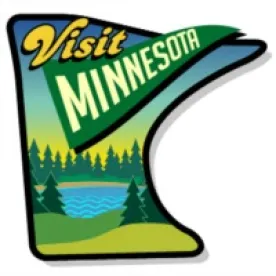Minnesota Governor Tim Walz has issued Executive Order 20-56, Safely Reopening Minnesota’s Economy and Ensuring Safe Non-Work Activities During the COVID-19 Peacetime Emergency, allowing more businesses to reopen effective May 17, 2020, at 11:59 p.m. The Order will remain in effect until May 31, 2020, at 11:59 pm.
With more businesses opening during this unprecedented time, Governor Walz additionally issued Executive Order 20-54, Protecting Workers from Unsafe Working Conditions and Retaliation During the Covid-19 Peacetime Emergency.
EO 20-56
Acknowledging certain workplaces with more transitory settings are less susceptible to spreading COVID-19, EO 20-56 outlines the requirements for these businesses to reopen. EO 20-56 does not permit businesses that involve communal facilities or require close physical contact (e.g., salons, barber shops, gyms, and fitness studios) to reopen at this time.
As with the previous executive orders, any worker who can work from home must continue to do so. Additionally, all employers who reopen must post instructions on social distancing and hygiene measures at all entrances and locations easily seen by customers or visitors.
EO 20-56 does not modify previous orders pertaining to Critical Sector Workers.
COVID-19 Preparedness Plan
Under EO 20-56, Non-Critical Businesses that are not already opened may reopen, provided they create and implement a COVID-19 Preparedness Plan that adheres to guidelines from Minnesota Occupational Safety and Health Administration (OSHA), the Minnesota Department of Health (MDH), and the Centers for Disease Control and Prevention (CDC).
The Plan must include the following provisions:
-
Require work from home whenever possible. Ensure that all workers who can work from home continue to do so.
-
Ensure that sick workers stay home. Establish policies and procedures, including health screenings, that prevent sick workers from entering the workplace.
-
Social distancing. Establish social distancing policies and procedures.
-
Worker hygiene and source control. Establish hygiene and source control policies for workers.
-
Cleaning, disinfection, and ventilation protocols. Establish cleaning, disinfection, and ventilation protocols for areas within the workplace.
Additional provisions are required for customer facing and household services businesses (discussed below).
All businesses must provide each worker a written copy of the Plan and the Plan must be posted in an easily accessible location at all of the business’s workplaces. Additionally, businesses must provide workers with training on the contents and procedures of the Plan. Businesses must then keep documentation demonstrating compliance with the training requirements.
While employers do not need to submit the Plan for approval, it must be readily available to regulatory authorities and public safety officers upon request.
Customer Facing, Household Services Businesses
Under EO 20-56, customer facing businesses (defined as those that have in-person customer interactions, including retail stores, and malls) may reopen, provided occupancy does not exceed 50 percent of normal occupant capacity.
EO 20-56 also allows household services businesses (e.g., housecleaning, maid services, and piano tuners) to reopen.
In addition to the provisions of the COVID-19 Preparedness Plan (discussed above), customer facing businesses and household services businesses must include provisions addressing the safety of the public and workers, such as requiring a physical distance of six feet apart. Plans also must provide signage in common areas to discourage gathering.
Outdoor Recreational Activities, Associated Facilities
Certain outdoor recreational activities and associated facilities may reopen, provided they meet certain requirements, including following MDH and CDC guidelines the Department of Natural Resources’ Outdoor Recreation Guidelines and prohibiting gatherings of more than 10 people.
Indoor facilities associated with the outdoor recreational activity must comply with the creation and implementation of a COVID-19 Preparedness Plan. Additionally, to the extent an indoor facility is covered under EO 20-04, Closure of Bars, Restaurants, and Other Places of Public Accommodations (most recently extended by EO 20-18), it must continue to comply with the requirements of those orders.
The follow businesses may reopen:
-
Public and private marinas and docks that provide storage, docking, and mooring services to slip owners, seasonal renters, and the general public, as well as facilities that provide safety-related services, including fueling, emergency dockage, and sanitary pump-out stations.
-
Public and private golf courses and outdoor driving ranges.
-
Ski areas.
-
Off-highway vehicles, snowmobiles, and watercraft repair shops, sales facilities, and showrooms.
-
Lake service providers to install, repair, and remove docks, boatlifts, and other water-related equipment or deliver boats.
-
Bait and tackle shops.
-
Outdoor shooting ranges and game farms.
-
Outdoor recreational equipment rental outlets.
-
Outdoor tournaments, competitions, practices, and sports that allow for social distancing.
-
Small one-on-one or one-on-two person guided and instructional activities, such as guided fishing, birding, or outdoor fitness training. Guided and instructional activities must be conducted in accordance with the Outdoor Recreation Guidelines.
For a complete list of covered outdoor recreational activities and associated facilities see EO 20-54.
The latest order does not permit charter boats, launches, or other facilities involving gatherings or close proximity (such as mini golf, pools, and concert venues) to reopen.
Extended Closure of Bars, Restaurants, Other Places of Public Accommodation
Bars, restaurants, and other places of public accommodation as identified in EO 20-04 (most recently amended by EO 20-18) are to remain temporarily closed until May 31, 2020, at 11:59 p.m.
By May 20, 2020, the Commissioners of Heath, Employment and Economic Development, and Labor and Industry will release a phased plan for the reopening of these businesses beginning on June 1, 2020.
EO 20-54
With more workplaces opening and in response to news of workers facing discipline and retaliation for reporting safety concerns, EO 20-54 prohibits employers from discriminating or retaliating against an employee for reporting safety concerns.
Protected activities include:
-
Asking questions or expressing concerns to management about occupational safety or health matters related to COVID-19;
-
Wearing self-provided gloves, face covering, or other protective gear the worker reasonably believes will protect them, their coworkers, or the public against COVID-19 while they work. Employers may require an employee to wear employer-provided protective gear, so long as it meets or exceeds the employee’s self-provided gear;
-
Refusing to work under conditions the worker reasonably believes in good faith present an imminent danger of death or serious physical harm; and
-
Requesting the Department of Labor and Industry to conduct an inspection of the workplace because the worker believes there is a violation of a safety or heath code that is an imminent danger or threatens physical harm.
If an employee quits because an employer failed to correct an unsafe work condition related to COVID-19, the employee may still be eligible to receive unemployment insurance benefits.
Additionally, EO 20-54 encourages employers to engage in an interactive process to identify reasonable accommodations for individuals with disabilities. Reasonable accommodations related to COVID-19 may include flexible work schedules, adjusting workstations, providing remote work, or use of leave.






 />i
/>i

